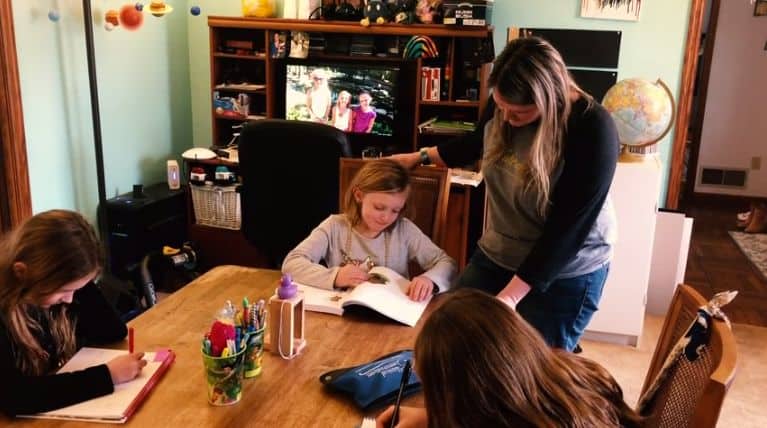
COVID-19 is today probably the most used word anywhere in the entire world. Whichever TV station one switches to within the hour, one is bound to hear COVID-19. This pandemic is being compared to the Spanish flu historically, but even to a war which some countries like Italy, are said to be losing. All ages are being affected in very different ways, very much like it was during the great wars.
Life as we know it has been turned upside down, as all of us were roped into a war we never wanted. As our daily lives have been overwhelmed by the coronavirus, we are encountering significantly more and more people who are experiencing severe distress. Parents with young and teenage children worry about the future. They worry about providing for their kids and worry about keeping them safe and healthy.
Grandparents worry about their frail health and whether they will be ever able to see their children and grandchildren.
Loneliness is eating away at the very fibre of our being, our social selves. We are asked to fight a war against an invisible enemy, one which creates uncertainty, helplessness and anxiety. We are relinquishing control of all that we are accustomed to, all that we know and makes us feel safe.
Children are the most innocent victims in this war. Up until we develop abstract reasoning (at around 11 years of age), we view the world in concrete terms. Children can speak to the moon and believe that it can talk back to them. The immediate is most important to a child’s perception of the world. They look around at the most important people in their lives to gauge how safe and or dangerous their world is. Their caregivers are the most important role models upon which they will determine their sense of security and thus their sense of self.
Social isolation and lockdown are two words definitely not present in a child’s dictionary.
It is good to start with one very important consideration. We often underestimate that a lot of our children’s behaviour is so much a reflection of our own anxieties and reactions to the same pandemic.
Children will obviously get very worried and concerned when they see their parents panic and not feel in control of a situation. COVID-19 pandemic is surely one such situation. Children have caregivers and they need to feel safe with them. They expect this from them. Understandably, it is very difficult to feel safe in these circumstances especially if one follows the news and social media. Irrespective of how much parents try to act cool with their children, their children can read through them like the best psychologist on the planet.
So without overly worrying children, one has to call a spade a spade. Children know we are worried so letting them know that these are difficult times that we never went through is important. It is understandable to let them know that at times or very often they see mummy and daddy worried about what could happen. This has to be followed immediately with a statement like “but my dear rest assured that mummy and daddy will do whatever it takes to keep us safe and so that we all remain safe together.”
In this scenario one has to add a caveat regarding those healthcare workers who have had to leave the family home and go and live elsewhere in order to keep the family safe. Until the age of 10-11, most children still have concrete operational thinking and find abstract thinking very difficult. Social media platforms today are very efficient as they can be used to communicate in real time. This allows children to still see their parent who left home because of work. It is imperative that one does not burden children with extra details which can make children feel guilty in any way for their parent’s departure for some months from home. This does not mean that children will not react.
Loss and the threat of loss is a major traumatic experience for anyone. Children too have their ways of reacting. Not all children and teens respond to this stress in the same way. Some common changes to watch for include:
- Excessive crying or irritation in younger children
- Returning to behaviours they have outgrown (for example, toileting accidents or bedwetting)
- Excessive worry or sadness
- Unhealthy eating or sleeping habits
- Irritability and “acting out” behaviours in teens
- Difficulty with attention and concentration
- Avoidance of activities enjoyed in the past
- Unexplained headaches or body pain
We are more than hundred percent sure that a number of parents are seeing some of the above signs in their kids. For these parents, this becomes worrying and increases the tension and anxieties even further. The million dollar question is “so what does one do?”
There are many things you can do to support your child
- Take time to talk with your child or teen about the COVID-19 outbreak. Answer questions and share facts about COVID-19 in a way that your child or teen can understand. Children and parents need to be reassured that this too will pass. Humanity has survived many difficult moments and we Maltese have always been heroes in fighting our wars. This is a great time for parents to reminisce and recount childhood stories or stories of their ancestors who fought their way through difficult times
- Reassure your child or teen that they are safe. Let them know it is ok if they feel upset. Share with them how you deal with your own stress so that they can learn how to cope from you. Answering with simplicity, directness and truthfulness is essential. Explaining to children that our part is to keep safe by washing our hands and staying at home. There are good doctors and scientists around the world working tirelessly to create the right medicines for all of us.
- Limit your family’s exposure to news coverage of the event, including social media. Children may misinterpret what they hear and can be frightened about something they do not understand.
- Try to keep up with regular routines. Same wake up and sleep time are important. If schools are closed, create a schedule for learning activities and relaxing or fun activities. Fairytales and stories which speak about hope give children much courage and solace. Distraction for both young and old can help us reconnect and catch up with lost time. This is such a wonderful opportunity to create new meaning to life. You can sing, dance, cook, exercise, paint, write stories. Journal your adventures at home. It’s amazing how many things you could do by just looking at a situation from different perspectives.
- Some links also offer meditation exercise and relaxation techniques. Breathing exercises could be very helpful during tense moments. Children find comfort in rituals, whether it’s bedtime reading, praying, bathing etc. Creating a routine which is predictable and consistent is helpful for both children and adults.
- Schedule FaceTime meetings with family and friends so everyone can remain connected.
- Be a role model, get plenty of sleep, hydrate, exercise and eat well.
- Stay hopeful and reassure your children. There may be uncertainty and situations can arise that are out of our control but the way we handle these moments and what we choose to do with them, totally depends on the us! We are indeed very powerful as human beings! Stay strong and safe
Stay safe and strong. You are not alone. We are in this together.

The authors: Dr Anna Cassar is a clinical psychologist and Dr Joe Cassar is a consultant psychiatrist.